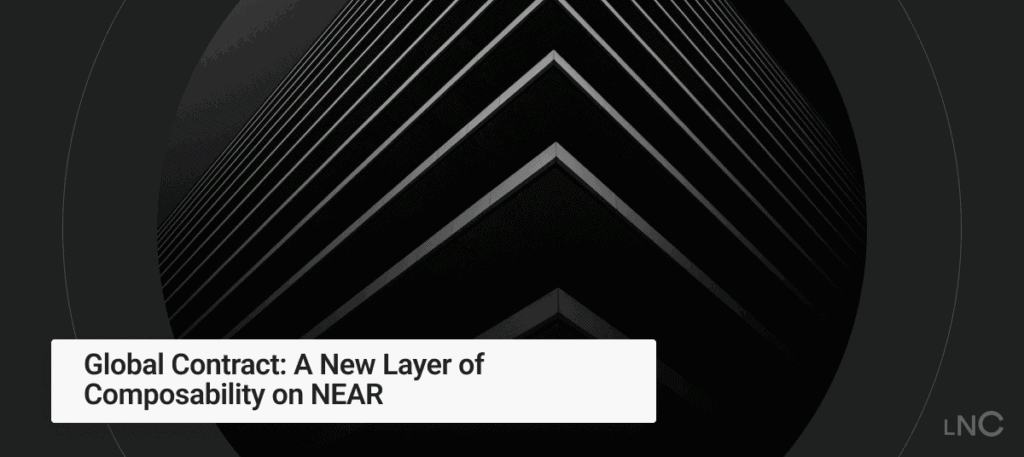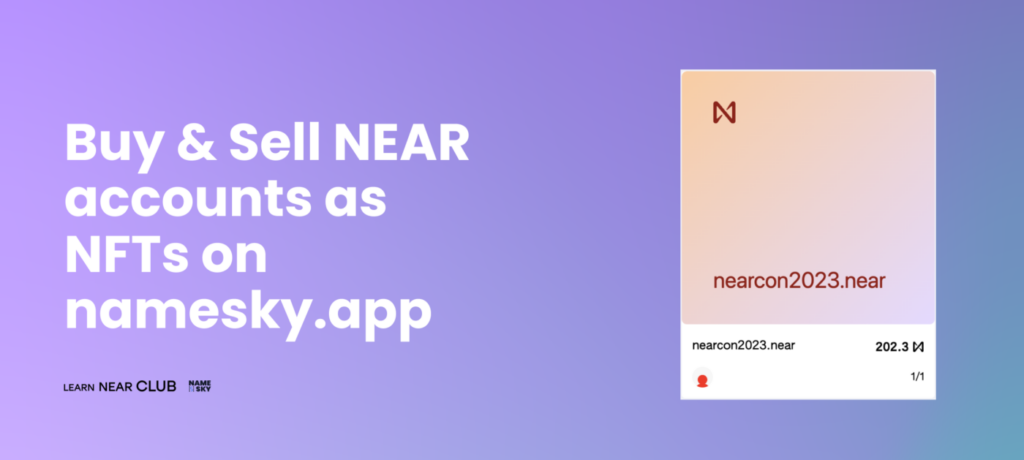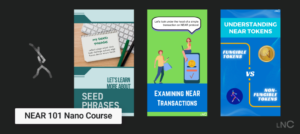The NEAR Protocol is already among the most developer-friendly and performant blockchains, designed for scalability via sharding. Yet, developers face friction when needing to deploy the same contract logic across multiple shards or accounts. NEP-0591, which introduces Global Contracts, is a highly strategic proposal that solves this elegantly.
Rather than deploying duplicate contracts or routing messages inefficiently across shards, NEAR developers can now think modularly and universally: write once, use everywhere. Global contracts aren’t just a technical convenience—they represent a fundamental shift in how shared logic, protocols, and standards can be embedded across the NEAR ecosystem.
Update (August 2025):
Global Contracts are now live on the NEAR Protocol with the release of version 2.7.0 of its core software. This is a major upgrade that allows developers to create smart contracts that can be used across many apps without having to rewrite or redeploy them each time. Think of it like how your phone uses shared apps—developers can now build reusable, standard pieces of logic that any NEAR app can plug into. This makes development faster, more secure, and more consistent. It also paves the way for open-source libraries and plug-and-play financial or gaming features, much like app stores or software modules in traditional tech. For users, this means better apps with fewer bugs and faster innovation. For the NEAR ecosystem, it’s a step toward becoming a more composable and developer-friendly blockchain.
🔍 What Makes Global Contracts Special?
-
🔗 Global Addressing
-
These contracts are not tied to a specific account but instead use a unique global identifier. This enables any contract, user, or application on NEAR to call the contract from any shard instantly.
-
-
🧱 Immutable Logic
-
The contract code is fixed once deployed, making it a trusted point of reference. This ensures consistency and security—ideal for system-critical protocols.
-
-
🤝 Shared Infrastructure
-
Global contracts can act as canonical libraries, utility hubs, or standards for other contracts to rely on, simplifying development and reducing duplication.
-
-
🌉 Cross-Shard Superpowers
-
Developers can build truly modular apps where parts of their stack reside on different shards but communicate via shared global logic with minimal latency or duplication.
-
✅ The Advantages – Why This Is a Big Deal
-
💡 Developer Efficiency
No need to copy/paste or deploy identical contracts for different apps or shards. Global contracts are reusable by design, just like NPM or Cargo libraries in Web2. -
🔄 Composability at Scale
This brings NEAR closer to a “Lego-like” architecture, where smart contracts snap together seamlessly—regardless of where they’re deployed. -
⚡ Cross-Shard Made Easy
Global contracts become “public services” for all shards, massively reducing the complexity of cross-shard communication and logic reuse. -
🛡️ Predictability and Trust
By being immutable and widely used, these contracts evolve into protocol-level standards, encouraging best practices and making auditability easier. -
🔌 Ecosystem Standardization
Enables network-wide standards for things like fungible tokens, identity modules, DAO tooling, and more—no more fragmented or incompatible versions of the same logic.
🔧 Ideal Use Cases
-
📚 Standard Libraries
Reusable components for math, string operations, or token interfaces. -
💱 DeFi Protocols
Global contracts can anchor DEXs, lending markets, oracles—shared across all applications. -
🗳 DAO Frameworks
Shared governance modules that any DAO can plug into, ensuring consistency and reliability. -
🆔 Identity & Credentials
One global contract can manage decentralized identity verification and access management for the entire chain. -
🧩 Multi-part dApps
Complex applications can split responsibilities across shards while accessing a common logic core.
👩💻🔧 Real life examples of Global Contract in prod
- Intear Smart Wallet Contract
A versatile smart contract deployed for all Intear Wallet accounts, enabling users to securely manage their wallets with advanced recovery features. The wallet integrates extensible recovery methods, allowing users to link Ethereum-compatible (EVM) or Solana wallets as backup authentication sources. Through validated signatures from these linked wallets, users can regain full access to their accounts in cases of lost keys or compromised access. Future expansions will include support for social authentication (e.g., Google) and decentralized social recovery (trusted friend groups). However, users should exercise caution, as the contract has not yet undergone a formal security audit.
Github
⚠️ What Needs to Be Solved (But Isn’t a Dealbreaker)
-
🧭 Governance
-
Who deploys and maintains these contracts? Ideally, through community-reviewed proposals or NEAR Foundation-endorsed processes.
-
Potential solution: NEAR-native DAOs or staking-based approval systems for critical global contracts.
-
-
🔐 Security Scope
-
Global = high impact. Vulnerabilities here affect a larger surface.
-
Mitigation: Formal verification and enforced immutability give strong guarantees.
-
-
🔄 Upgrade Pathing
-
Since contracts are immutable, major upgrades require deploying new versions.
-
Solution: Use proxy or modular design patterns—already common in Solidity—to preserve state and allow soft upgradability.
-
🧠 Final Thoughts: A Bold Step Toward a Modular, Scalable NEAR
Global contracts are not just a feature; they’re a core building block for the next era of blockchain development on NEAR. By removing account-based limitations and enabling truly shared logic, NEP-0591 transforms NEAR into a composability-first protocol, on par with or even exceeding Ethereum and Polkadot in modular design.
If adopted and implemented properly, this could be a key milestone in NEAR’s roadmap to becoming the go-to chain for composable dApps, DAOs, and DeFi protocols. It’s a bold but necessary evolution—and one that makes NEAR a more attractive home for serious builders.
Updated: August 21, 2025





Top comment
Love how these ideal use cases showcase the versatility of global contracts! I'm particularly intrigued by the potential of shared governance modules for DAOs 🗳. Consistency and reliability are crucial for decentralized decision-making, and having plug-and-play modules can streamline the process. What I'm curious about is how these global contracts can ensure security and scalability across the board? Are there any specific measures in place to prevent vulnerabilities or bottlenecks when multiple applications rely on the same contract? 🤔
👍👍
🧑 100% userNo more repeating logic across dApps. Now we can build on a public smart contract base—like a Web3 OS
I'm excited about the potential of NEAR's global contracts to revolutionize blockchain development. By embracing a modular and scalable approach, NEAR is positioning itself as a leader in composability. However, I'm curious to see how this will play out in practice – what are the potential challenges and trade-offs of this new design? Will it lead to a significant increase in adoption and usage of NEAR-based dApps and DeFi protocols? I think it's a step in the right direction, but the real test will be in its implementation and execution.